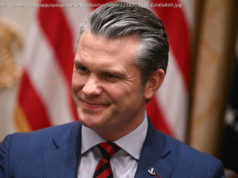Trump is being attacked for failing to call for Medicare neogtiation on drug prices–but that would not produce the savings most people expect.
President Trump is being roundly attacked for dropping a popular solution for high drug prices from his policy statement Friday. That solution is to allow Medicare to negotiate prices directly with drug companies.
Trump’s reason for dropping the idea, which he endorsed during the presidential campaign, isn’t clear. One possibility is that he’s responding to the wishes of the pharmaceutical industry, which hates the idea.
As we reported last year, however, this solution has consistently been oversold as a path to lower prices. Drug prices already are subject to negotiation between the drug companies and the insurers providing benefits under Medicare Part D, the prescription drug benefit.
And Medicare doesn’t have the singular advantage enjoyed by the Dept. of Veterans Affairs in holding prices down—the ability to walk away. The VA maintains a much smaller drug formulary (the roster of approved drugs) than Medicare, so its threat to kick a drug off the formulary packs a punch that keeps drugmakers at the table.
Medicare theoretically could shrink its formulary, but that would raise hell politically. So it’s not likely to happen.
We aired all these concerns and others in our column published Jan. 11,2017. The facts on the ground haven’t changed, so we’re reproducing the column below, with minor changes.
_______________________________
At his press conference Wednesday, President-elect Donald Trump endorsed what may be the most oft-cited solution to the crisis of skyrocketing drug prices: allowing Medicare to negotiate prices directly with drug manufacturers.
Trump’s words were solidly in the mainstream of healthcare reform thought, even if he did add the spin of a self-styled dealmaker. (Democratic candidates Hillary Clinton and Bernie Sanders both advocated the same policy during the campaign.)
Calling for the creation of „new bidding procedures for the drug industry,“ Trump charged that drug manufacturers are „getting away with murder.“ Big Pharma, he said, „has a lot of lobbies, a lot of lobbyists and a lot of power. And there’s very little bidding on drugs. We’re the largest buyer of drugs in the world, and yet we don’t bid properly.“ He projected savings of „billions of dollars over a period of time.“
It is uncertain whether repealing the ban would be effective in lowering spending on Part D drugs…. Repeal may be unrealistic, or even unwise.
Trump actually was ratcheting back from the projections he put forth during the campaign. In those days he projected savings for Medicare of $300 billion a year. That was implausible to say the least, observed the Committee for a Responsible Federal Budget, which otherwise is gung ho for any budget savings; the reason was that Medicare drug spending runs only at about $100 billion a year, total.
In any case, on Wednesday the drug industry took Trump seriously; drug stocks cratered during the press conference, taking down the broader averages with them.
Trump’s talk reflected conventional thinking, but there was a misconception at the center of it. Actually, quite a lot of bidding on drugs takes place from the government side. The Department of Veterans Affairs probably gets the most out of the process, but Medicare gets something too. That program doesn’t negotiate prices directly, but the commercial insurance firms that provide Part D prescription coverage for Medicare’s 57 million enrollees do quite a bit of it. By some estimates, they may get reductions as large as possible.
And that suggests that the change Trump endorsed, and that has been trumpeted for years by reform wonks (including us), may simply not be as effective as people expect.
„The reason is that any attempt to get a better price means the paying party needs to have a quasi-credible threat to say no and walk away,“ observes health insurance expert David Anderson of Duke’s Margolis Center for Health Policy. The Part D companies don’t always have that threat at hand, for reasons we’ll explain.
First, the broader obstacles to the change that Trump and so many others advocate. According to Theodore Lee, Abbe Gluck and Greg Curfman of Yale Law School, the chief obstacle is politics. Even though as much as 87% of the public favors the change, according to a 2015 Kaiser Family Foundation poll, the industry is dead-set against it.
Trump wasn’t wrong in stating that Big Pharma can muster enormous lobbying pressure on Capitol Hill, but he can’t wish it away, either. Gluck and her colleagues place Big Pharma’s lobbying war chest at more than $231 million in 2015. Indeed, they observe, „the industry has spent more on lobbying than any other industry since 1998.“
The industry not only can shower legislators with money and cut them off when it pleases, but it also can muster heavy pressure from patient groups and other advocates sensitive to how Medicare policies affect their constituencies. It can’t be overlooked that the drug industry’s support was crucial in getting Medicare Part D enacted in 2003 — and that the ban on direct negotiation was the price of its support — and in getting the Affordable Care Act passed in 2010.
„Conspicuously absent from President Obama’s signature health reform efforts were any provisions directed at reducing the prices Medicare pays for drugs,“ wrote Gluck and her colleagues. „It is uncertain whether repealing the ban would be effective in lowering spending on Part D drugs.… Repeal may be unrealistic, or even unwise.“ In truth, no one is quite sure how removing the ban would actually work or how much would be saved. „Rarely have we seen a health policy issue on which there is so much apparent consensus that is backed by so little research,“ the authors wrote.
The private insurers that provide prescription coverage already have some leeway in deciding which drugs to include on their rosters, or „formularies“ — but not absolute flexibility. They’re required to provide at least two drugs in each of several drug classes, but „all or substantially all“ drugs in six protected classes: immunosuppressant, anti-cancer, anti-retroviral, antidepressant, antipsychotic and anticonvulsant drugs. The goal of this limitation is laudable, because it prevents insurers from cherry-picking customers by manipulating access to drugs for people with potentially costly conditions. But the rule also constrains their ability to threaten to walk away from the table when negotiating with drug makers.
The one government program that squeezes drug companies for discounts by using its authority to set its own formulary is Veterans Affairs.
Start
United States
USA — Events Trump dropped Medicare negotiation from his prescription drug plan–but it might not...






